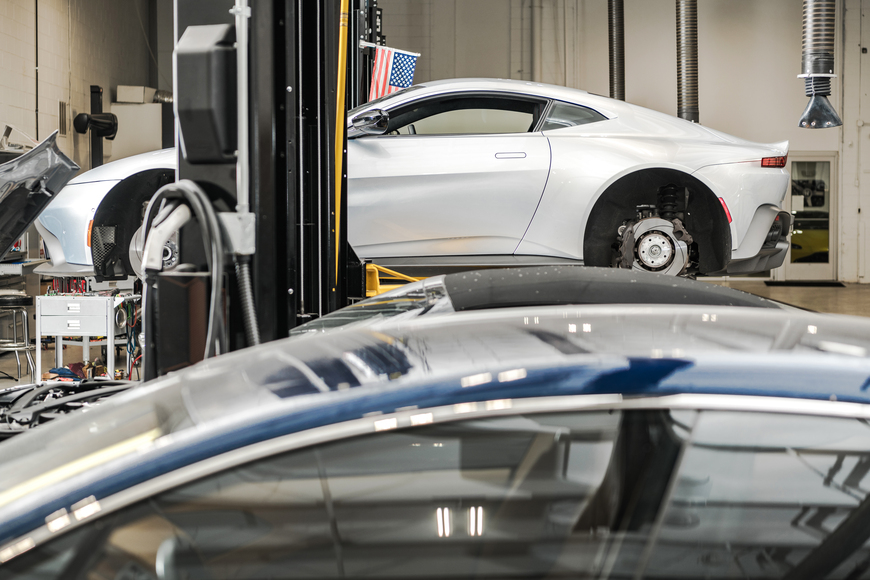Failed Japanese Auto Mega-Fusion: Impact on Global Shipping
Want To Compare The Best Express, Air Freight, Sea Freight, Rail Freight & Trucking Rates So As To Have Better Control On Cost?
Introduction
The automotive industry has been buzzing with news of a potential mega-fusion between Japanese automakers Nissan, Honda, and Mitsubishi. However, recent reports indicate that this ambitious merger has fallen through, sending shockwaves through the global automotive sector. This development could have far-reaching consequences for global automotive supply chains, international trade, and particularly for shipping and freight transport of automotive parts and vehicles.
The Failed Mega-Fusion: What Happened?
According to recent news, negotiations for the merger between Nissan, Honda, and Mitsubishi have been called off. This decision has left thousands of jobs hanging in the balance and has significant implications for the automotive industry, especially in the context of the ongoing shift towards electric vehicles.
Key Facts:
- The merger would have created one of the world’s largest automakers
- Negotiations were terminated due to unspecified reasons
- The failed fusion impacts not only Japan but also has global repercussions
- Thousands of jobs are now at risk across the companies involved
Impact on Global Shipping and Freight Transport
The collapse of this mega-fusion could lead to significant changes in shipping patterns and freight transport for automotive parts and vehicles. Here’s how:
1. Shifts in Export-Import Flows
With the merger off the table, each company will likely maintain its individual supply chains and production facilities. This could result in:
- Continued diversification of shipping routes
- Potential increases in export-import activities as companies compete individually
- Changes in the volume and frequency of shipments from different manufacturing hubs
2. Alterations in Supply Chain Strategies
The failed merger may prompt these automakers to reassess their supply chain strategies, leading to:
- Possible relocations of production facilities
- New partnerships with suppliers in different regions
- Increased focus on local sourcing to mitigate risks
3. Impact on Freight Transport Modes
The individual strategies of Nissan, Honda, and Mitsubishi could affect various modes of freight transport:
- Changes in sea freight volumes for finished vehicles and parts
- Potential increases in air freight for time-sensitive components
- Adjustments in land transport networks to accommodate new supply chain configurations
Adapting to Change: The Role of Digital Platforms
In light of these potential shifts in the automotive industry’s shipping and freight transport landscape, logistics providers need to be agile and adaptable. This is where digital supply chain platforms like FreightAmigo come into play.
How FreightAmigo Can Help:
- Real-time visibility: Our platform provides up-to-date information on shipments, helping logistics providers track and manage changes in export-import flows efficiently.
- Flexible routing: FreightAmigo’s advanced algorithms can quickly adapt to new shipping patterns, optimizing routes and modes of transport.
- Data-driven insights: By analyzing shipping trends, our platform can help logistics providers anticipate and prepare for shifts in demand across different regions.
- Streamlined documentation: As supply chains evolve, our digital platform simplifies the management of customs documentation and compliance requirements for changing export-import scenarios.
Conclusion
The failed mega-fusion between Nissan, Honda, and Mitsubishi serves as a reminder of the dynamic nature of the global automotive industry. As the sector continues to evolve, particularly with the rise of electric vehicles, the impact on shipping and freight transport will be significant. Logistics providers must remain flexible and leverage advanced digital tools to navigate these changes effectively.
At FreightAmigo, we’re committed to providing cutting-edge solutions that help our clients adapt to the ever-changing landscape of global trade. By embracing digital transformation, we can turn industry challenges into opportunities for growth and efficiency in the world of automotive logistics.
Reference
HNA. (2025). Mega-Fusion gescheitert: Riesen-Autobauer sagen Verhandlungen ab – Tausende Jobs jetzt auf der Kippe. Retrieved from https://www.hna.de/wirtschaft/nissan-honsa-mitsubishi-fusion-japan-deutschland-news-wirtschaft-elektro-autos-e-auto-vw-toyota-zr-93571553.html
If You Wish To Learn More About Ocean Freight Rates, Please Go To The FreightAmigo Page For Inquiries
Read More:
US-Russia Talks: Impact on Global Trade and Shipping
If you have any inquiries on logistics / supply chain, feel free to contact FreightAmigo now:
Chat with us online | Hotline: +852 28121686 | WhatsApp: +852 27467829










































